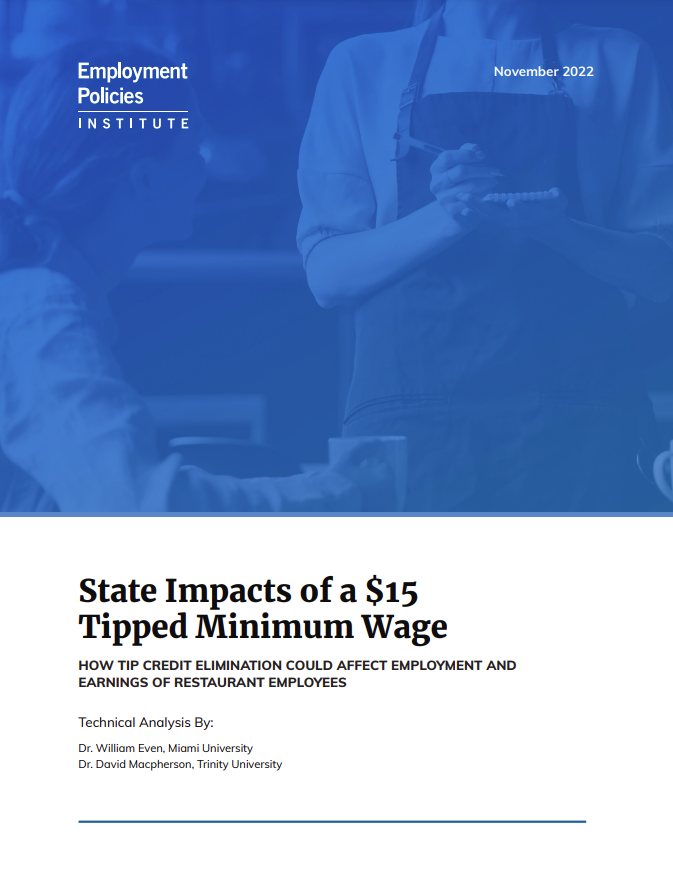State Impacts of a $15 Tipped Minimum Wage
Abstract
Since the Raise the Wage Act of 2021 failed in the U.S. Senate, fights over the minimum wage – especially for tipped restaurant employees – have moved to the states. Anti-tip credit activists have pledged to implement similar provisions at the state level, including eliminating states’ existing tip credit systems in favor of a flat $15 minimum wage. New analysis from Drs. William Even (Miami University) and David Macpherson (Trinity University) presents the negative impacts tip credit elimination would have at the state and family level.
- The United States could lose as many as 801,224 jobs in the restaurant industry under a $15 minimum wage with no tip credit, with 466,040 of those jobs belonging to tipped restaurant employees. The states with the largest number of jobs lost include Texas (127,477 lost), Ohio (63,205 lost), Pennsylvania (57,291 lost), North Carolina (46,738 lost), and Michigan (43,568 lost).
- Full-service restaurant employees across the U.S. could lose nearly $2.2 billion in total annual earnings due to a $15 tipped minimum wage. States with largest earnings losses include Texas ($452 million lost), Georgia ($151 million lost), North Carolina ($143 million lost), Virginia ($129 million lost), and Tennessee ($113 million lost).
- Eliminating the tip credit and raising state tipped minimum wages to $15 would cost the average family with a tipped worker thousands of dollars per year in annual income. The largest losses for families of tipped workers will fall in the following states: Texas ($4,942 lost annually per family), Virginia ($4,899 lost per family), New Hampshire ($3,755 lost per family), Mississippi ($3,651 lost per family), and Nebraska ($3,597 lost per family).

